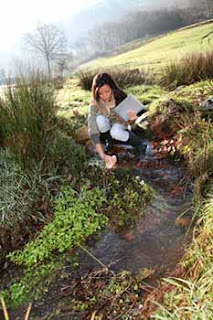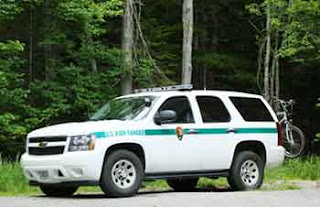The job title Conservation Officer is, at times, synonymous with fish and game warden, and refers to the individual who enforces state and federal laws protecting natural resources that include fish and wildlife. Conservation officers are essentially police officers who are often certified to enforce other laws, such as motor vehicle laws and controlled substance statutes, within their jurisdiction.
Career Details for Conservation Officer
Conservation officers monitor hunters, fishermen, and trappers to ensure that they fully comply with state and federal regulations. Types of activities a Conservation Officer may be involved in:
- Enforcing state and federal statutes in campgrounds and parks
- Determining the methods used to collect game
- Checking vehicles and watercraft for compliance with state and federal laws
- Conducting educational programs on wildlife preservations
- Preparing and presenting cases in court
- Working closely with other law enforcement agencies in cases involving multi-agency jurisdictions
- Establishing and protecting the chain of custody of evidence collected during investigations of violations of fish and wildlife statues
Requirements and Qualifications to work as a Conservation Officer:
An associate’s degree is usually the minimum educational requirement to become a conservation officer, or a game warden. There are many agencies and groups that will require a Bachelor’s degree in criminal justice, biology, or environmental sciences.
Before working as a Conservation Officer, one must:
- be familiar with state and federal statutes
- possess the ability to perform the duties of a sworn law enforcement officer
- be able to conduct public presentations
The career of a Conservation Officer often involves the outdoors; due to the job being very physically demanding, most groups/agencies will require their conservation officers to be in top physical condition. Those who want to work as conservation officers must successfully pass several physical and psychological tests. Candidates must also be qualified to carry a handgun; and candidates absolutely must be able to pass an extensive background investigation.
Job Training for Conservation Officers
Training sometimes differs according to whether the conservation officer works for the federal or state government. Officers hired by the federal government usually will complete a 20-week training program, with the first 12 weeks required to be conducted at the Federal Law Enforcement Agency in Glynco, Georgia. Trainees will spend the remaining weeks in West Virginia. The training academy will successfully focus on criminal investigations and wildlife law enforcement, including the proper use of firearms and identification of wildlife. Once completing the training academy, conservation officers must spend the next 10 weeks in the field under the mentorship of a Field Training Officer before they effectively move to their assigned location.
Bear in mind that individual states will have their own requirements for training. Find out what your state requires.
Additional Skills for Conservation Officers
Conservation officers should be able to work independently. Prospective fish and game wardens with previous experience with wildlife, including as a volunteer or in a paid capacity, may find it easier to find employment as a Conservation Officer.
Facts About The Job
- Though fish and game wardens are often expected to work a usual 40-hour workweek, they are, at times, required to work evenings, weekends, and holidays. Overtime may also be required at special times.
- Conservation officers should be adaptable and prepared to work in various weather conditions and various terrain such as forests, woods, deserts, and wetlands. Fish and game wardens spend the majority of their time outdoors.
- Because officers enforce the law, conservation officers must be up-to-date with all changes in state and federal laws and regulations related to their work. Depending on the state, conservation officers may have to meet minimum continuing education requirements each year.
- Conservation officers must be willing to confront dangers, as many of the individuals that officers face can be armed. Fish and game wardens often deal with wildlife, making them susceptible to animal bites, stings, and other injuries in nature.
Other Terms, or Job Titles that serve as Conservation Officers
- Wildlife enforcement officer
- Wildlife officer
- Conservation warden
- Environmental police officer
- Fish and game warden
- Game warden
- Natural resources officer
Career Possibilities for Conservation Officers
Conservation officers usually will find viable employment with state or federal agencies. Well-trained and experienced fish and game wardens are able to advance to supervisory, or administrative positions, or even to the level of field training officers.
Salary Expectations for Conservation Officer
According to the US Bureau of Labor Statistics (BLS), fish and game wardens throughout the United States earned an average annual wage of $54,970 in 2015.
 A Wildlife biologist researches and monitors plant and animal habitats in specific regions in order to determine various, and specific, environmental and population dynamics. Wildlife biologists may
A Wildlife biologist researches and monitors plant and animal habitats in specific regions in order to determine various, and specific, environmental and population dynamics. Wildlife biologists may 
